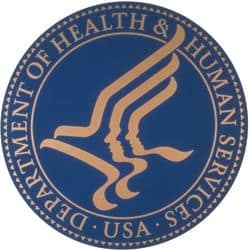 Today has already seen the unprecedented advancement of rights for same-sex married couples with the U.S. Department of Treasury's decision to extend tax benefits to same-sex married couples, regardless of the state in which they live. This is, or course, in response to the U.S. Supreme Court's decision to strike down Section 3 of the Defense of Marriage Act. Now, the Department of Health and Human Services is following suit, and has released guidelines for what the end of DOMA means for Medicare.
Today has already seen the unprecedented advancement of rights for same-sex married couples with the U.S. Department of Treasury's decision to extend tax benefits to same-sex married couples, regardless of the state in which they live. This is, or course, in response to the U.S. Supreme Court's decision to strike down Section 3 of the Defense of Marriage Act. Now, the Department of Health and Human Services is following suit, and has released guidelines for what the end of DOMA means for Medicare.
Same-sex married couples will now have access to nursing home care through their Medicare-funded private insurance, a benefit that has always been available to opposite-sex married couples. According to the Washington Blade, in the days before DOMA was struck down:
"Seniors with Medicare Advantage previously may have had to choose between receiving coverage in a nursing home away from their same-sex spouse or disenrolling from their plan to be with their loved one. The latter option would mean paying more out of pocket for care."
Thankfully, those days are now over. Danielle Moon, director of the Medicare Drug & Health Plan Contract Administration Group, lays out The Center for Medicare & Medicaid Services' new post-DOMA interpretation of the term "spouse":
"In light of the Supreme Court's decision in Windsor, CMS believes it would be impermissible to interpret the term ‘spouse,' as used in section 1852(l)(4)(A)(iii), to exclude individuals who are in a legally valid same-sex marriage sanctioned by a state, territorial or foreign government…MA organizations therefore are required, effective immediately, to cover services in a SNF in which a validly married same sex spouse resides to the extent that they would be required to cover the services if an opposite sex spouse resided in the SNF."
 In a news statement accompanying the new guidelines, Secretary of Health & Human Services Kathleen Sebelius noted that this new guideline is the first of many more that will be on the way:
In a news statement accompanying the new guidelines, Secretary of Health & Human Services Kathleen Sebelius noted that this new guideline is the first of many more that will be on the way:
“HHS is working swiftly to implement the Supreme Court's decision and maximize federal recognition of same-sex spouses in HHS programs. Today's announcement is the first of many steps that we will be taking over the coming months to clarify the effects of the Supreme Court's decision and to ensure that gay and lesbian married couples are treated equally under the law.”
Better yet, Moon has clarified that the new guideline applies to couples, across the country, even if they live in a state that does not yet recognize marriage equality:
“The foregoing analysis applies to individuals of the same sex who are domiciled in a state or territory that recognizes their relationship as a marriage. It also applies to individuals of the same sex who were legally married in a state or other jurisdiction without regard to whether they are domiciled in a state or territory that recognizes their relationship as a marriage.”
You can read the full release, via the Washington Blade, HERE.



